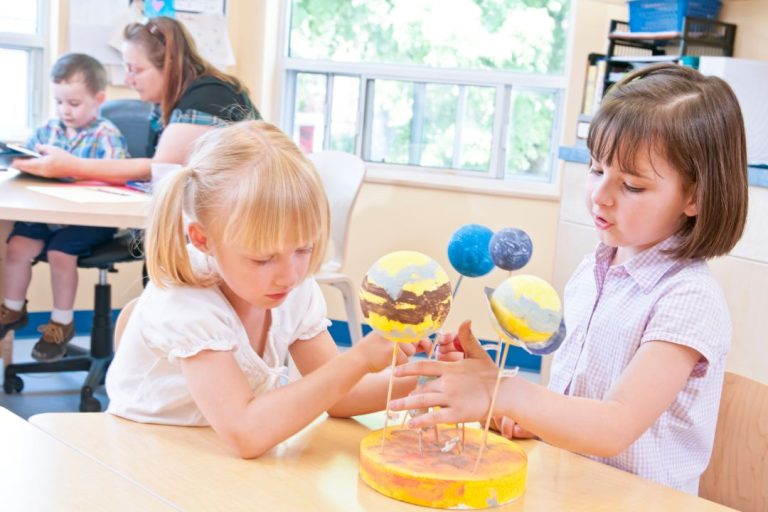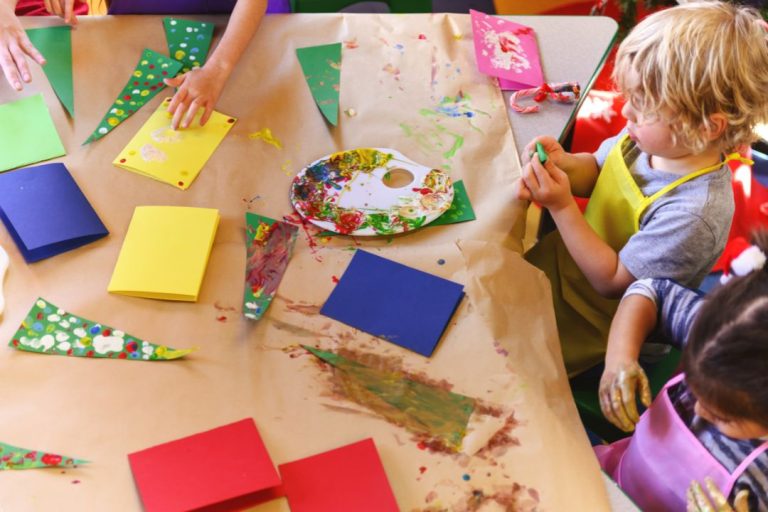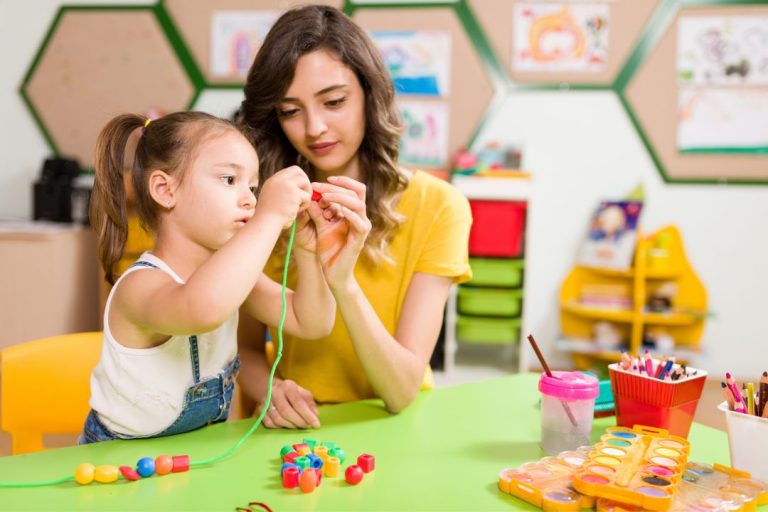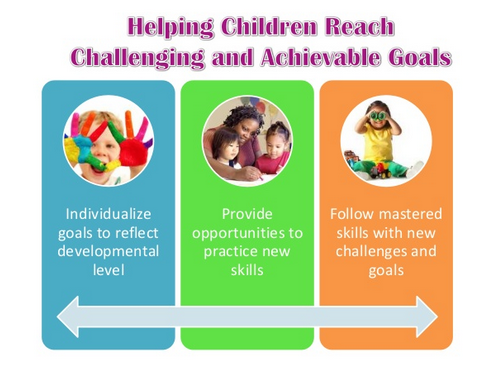Why are Early Childhood Educators Important : The Crucial Role in Child Development
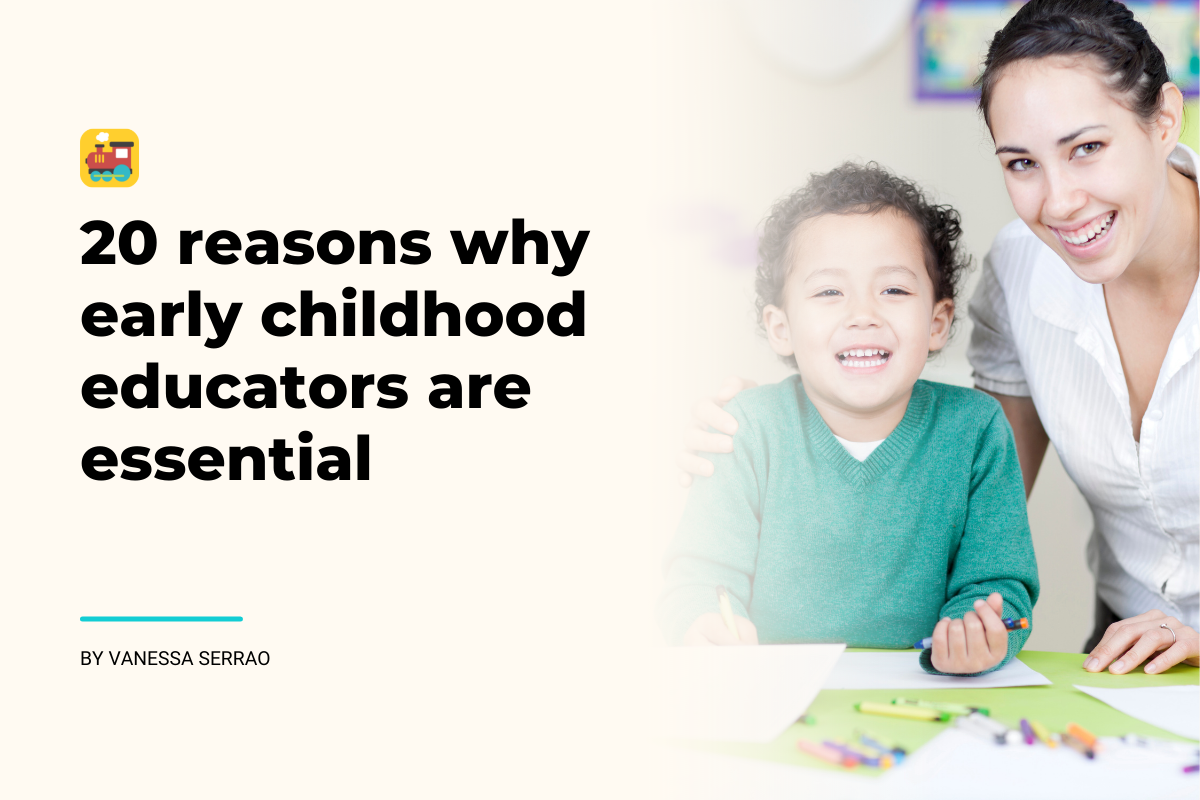
Early childhood educators are vital for laying a strong foundation for a child’s development and learning. They play a crucial role in shaping young minds and fostering lifelong skills.
Their expertise in early childhood education helps in nurturing social, emotional, and cognitive growth in children. By providing a safe and stimulating environment, educators support children in developing essential skills and preparing them for future academic success. Through their dedication and passion, early childhood educators contribute significantly to building a solid educational framework for children during their formative years.
Their impact extends beyond the classroom, influencing children’s overall well-being and shaping their future potential.
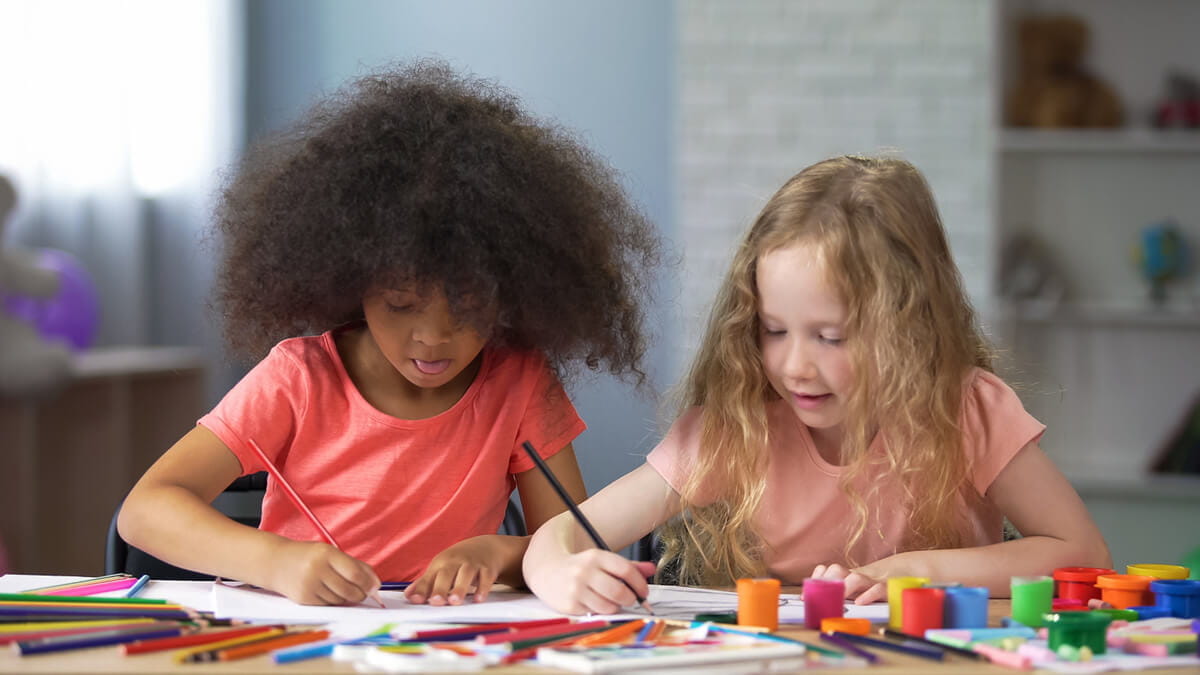
Credit: www.waldenu.edu
The Impact Of Early Childhood Educators
Early childhood educators play a crucial role in shaping the development of young children. Their impact extends beyond the classroom, influencing social skills, cognitive development, and emotional well-being. Let’s delve into the significant influence these educators have on the early stages of a child’s life.
Fostering Social Skills
Early childhood educators create a nurturing environment where children learn to interact, communicate, and collaborate with their peers. Through structured activities and play, educators encourage the development of empathy, respect, and cooperation, laying the foundation for positive social interactions in the future.
Enhancing Cognitive Development
The guidance provided by early childhood educators stimulates cognitive growth in young minds. Educators engage children in activities that promote critical thinking, problem-solving, and creativity, fostering a love for learning and exploration. This early exposure to stimulating experiences sets the stage for future academic success.
Qualities Of Effective Early Childhood Educators
Effective early childhood educators possess a unique set of qualities that enable them to provide nurturing, supportive, and stimulating environments for young children. These educators play a crucial role in shaping the cognitive, emotional, and social development of children during their formative years. Let’s delve into the essential qualities that make early childhood educators indispensable.
Empathy And Patience
Empathy is the ability to understand and connect with the emotions and experiences of others. Early childhood educators with empathy can effectively tune into a child’s feelings, creating a safe and supportive environment. Patience is equally vital, as it allows educators to handle challenging behaviors with composure and understanding, fostering a positive learning environment.
Creativity And Adaptability
Creativity enables educators to develop innovative and engaging activities that stimulate a child’s imagination and curiosity. This quality encourages a love for learning and exploration. Adaptability allows educators to respond to the unique needs and learning styles of each child, ensuring that every child receives the tailored support they require.
Challenges Faced By Early Childhood Educators
Early Childhood Educators play a crucial role in shaping young minds, but they face various challenges such as managing diverse learning styles and addressing individual needs effectively. Their importance lies in laying the foundation for lifelong learning and development in children.
Early childhood educators play a crucial role in shaping the minds and behaviors of young children. However, they encounter various challenges in their daily responsibilities. From behavior management to fostering effective parent-teacher communication, these educators navigate a myriad of obstacles to ensure the best learning environment for their students.Behavior Management
Early childhood educators often face the challenge of managing diverse behaviors within their classrooms. This may include dealing with disruptive behaviors, addressing individual learning needs, and creating a positive and inclusive atmosphere for all children. The ability to establish clear and consistent behavior management strategies is vital in promoting a conducive learning environment for young learners.Parent-teacher Communication
Effective communication with parents is a significant challenge for early childhood educators. Building a strong partnership with parents is essential for the holistic development of children. Educators must find ways to maintain regular and open lines of communication to share important updates, discuss a child’s progress, and address any concerns that may arise. Establishing trust and collaboration between educators and parents is key to ensuring the overall well-being and development of the child. In conclusion, early childhood educators face a range of challenges that require patience, creativity, and effective strategies to overcome. By addressing these obstacles, educators can create a nurturing and supportive learning environment for young children, setting them on a path for future success.Training And Education For Early Childhood Educators
Training and education for early childhood educators play a crucial role in shaping the development and future success of children. Early childhood educators are responsible for providing a safe, nurturing, and stimulating environment for young children, which requires a specialized skill set and knowledge base. Let’s delve into the importance of ongoing professional development, certifications, and degrees for early childhood educators.
Importance Of Ongoing Professional Development
Ongoing professional development for early childhood educators is essential for staying updated with the latest research, best practices, and teaching methodologies. It enables educators to enhance their skills, expand their knowledge, and adapt to the evolving needs of young children. Continuous learning also fosters a culture of innovation and improvement within the early childhood education field, ultimately benefiting the children under their care.
Certifications And Degrees
Certifications and degrees in early childhood education provide educators with a solid foundation of theoretical knowledge and practical skills. Attaining specialized certifications, such as Child Development Associate (CDA) or a Bachelor’s degree in Early Childhood Education, demonstrates a commitment to professionalism and expertise in the field. These credentials validate the educator’s competency and dedication to providing high-quality care and education for young children.
Influence On Future Success
Early childhood educators play a crucial role in shaping the future success of children. Their influence extends beyond the classroom, impacting various aspects of a child’s life. Let’s delve into how these educators contribute to long-term success through academic achievement and emotional intelligence development.
Long-term Impact On Academic Achievement
Early childhood educators lay the foundation for academic success through interactive learning experiences.
- They foster a love for learning through engaging activities.
- Encourage curiosity and critical thinking skills development.
- Provide individualized support to cater to diverse learning styles.
Development Of Emotional Intelligence
Emotional intelligence is vital for navigating relationships and challenges in the future.
- Early childhood educators nurture empathy and social skills.
- Teach self-regulation and coping mechanisms for emotional situations.
- Help children understand and express their feelings effectively.

Credit: scalar.usc.edu
Supporting Early Childhood Educators
Supporting Early Childhood Educators is crucial for the holistic development of young children. These educators play a vital role in laying the foundation for a child’s future success. By providing them with the necessary resources and tools, prioritizing their mental health and well-being, we can ensure that they are equipped to provide the best possible care and education for young learners.
Resources And Tools
Early childhood educators require a range of resources and tools to create a stimulating and nurturing learning environment. This includes age-appropriate educational materials, books, toys, and art supplies. Moreover, access to professional development opportunities and training programs is essential to keep educators updated with the latest teaching methodologies and child development practices.
Mental Health And Well-being
The mental health and well-being of early childhood educators must be prioritized to prevent burnout and ensure they can provide high-quality care. Establishing support networks, providing access to counseling services, and promoting work-life balance are essential for their overall well-being. Additionally, creating a positive and supportive work environment can significantly impact their mental health in a positive way.
The Role In Building Resilience
Early childhood educators play a crucial role in building resilience in young children, shaping their ability to adapt and thrive in the face of challenges.
Creating Safe And Nurturing Environments
Creating safe and nurturing environments is fundamental for fostering resilience in children. Early childhood educators establish a sense of security and trust through consistent care and positive interactions.
Teaching Coping Strategies
Teaching coping strategies equips children with the skills to manage stress and adversity. Educators guide them in identifying emotions, problem-solving, and seeking support when needed.
Advocating For Early Childhood Educators
Highlighting the crucial role of Early Childhood Educators in shaping young minds and fostering development. These dedicated professionals lay the foundation for lifelong learning and success, emphasizing the significance of advocating for their support and recognition in society.
Early childhood educators play a crucial role in the development of children. They lay the foundation for a child’s future success by providing a nurturing environment, teaching them essential skills, and promoting social and emotional growth. Despite their critical role in society, early childhood educators are often under-recognized and undervalued. In this blog post, we will explore why advocating for early childhood educators is vital and what changes are necessary to better support them.Recognition And Compensation
Early childhood educators are responsible for shaping the minds of the next generation, yet they are often paid low wages and lack the recognition they deserve. It is time to change this. Early childhood educators should be recognized for their hard work and dedication to children’s development. This can be achieved by providing them with better compensation, benefits, and opportunities for professional growth. It is essential to acknowledge the important role they play in society and provide them with the respect they deserve.Policy Changes For Better Support
Policy changes are necessary to better support early childhood educators. For instance, providing more funding for early childhood education programs, increasing the number of qualified educators, and ensuring that all educators receive adequate training and resources. These changes will not only benefit early childhood educators but also benefit the children they teach. By providing better support, we can ensure that early childhood educators can continue to provide high-quality education and care to our children.Conclusion
In conclusion, early childhood educators are essential to society’s growth and development, yet they are often undervalued and under-recognized. By advocating for early childhood educators and providing them with better recognition, compensation, and support, we can ensure that they can continue to provide high-quality education and care to our children. It is time to acknowledge the vital role they play and provide them with the support they deserve.
Credit: twitter.com
Frequently Asked Questions
Why Is It Important For Early Childhood Educators?
Early childhood educators play a critical role in a child’s development. It is important for them to provide a nurturing and stimulating environment that promotes learning and growth. By investing in early childhood education, we can help ensure that children are given the tools they need to succeed academically, socially, and emotionally.
How Might The Early Childhood Educators Help?
Early childhood educators can support children’s development through play-based learning activities and fostering social-emotional skills.
What Is The Role Of The Early Childhood Educator?
The role of the early childhood educator is to provide nurturing care and education to young children. They create a safe and stimulating environment, promote learning through play, and support children’s social, emotional, and cognitive development. Early childhood educators also collaborate with families and other professionals to ensure holistic development.
Why Are Daycare Teachers So Important?
Daycare teachers play a crucial role in child development by providing care, education, and support. They create a safe and nurturing environment for children to learn and grow, fostering social, emotional, and cognitive skills essential for future success.
Conclusion
Early childhood educators play a crucial role in shaping the future of children. They provide a safe, nurturing, and stimulating environment that promotes learning and development. Their expertise in child development, curriculum planning, and teaching strategies ensures that children receive quality education during their formative years.
By investing in early childhood education, we are investing in the future of our society. It is imperative that we recognize the importance of early childhood educators and provide them with the support and resources they need to continue to make a positive impact on young children.
Lorem Ipsum is simply dummy text of the printing and typesetting industry. Lorem Ipsum has been the industry’s standard dummy text ever since the 1500s, when an unknown printer took a galley of type and scrambled it to make a type specimen book.

